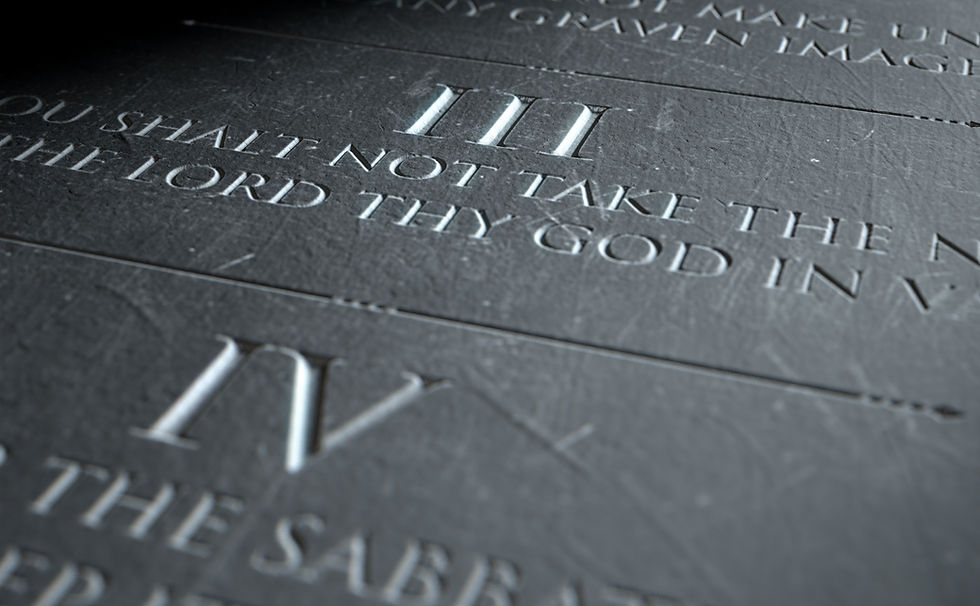Millennials and Conservatism “Perhaps you were born for such a time as this” – Esther 4:14
- Mia McCord

- Sep 10, 2020
- 4 min read
Our Nation is grappling with a deluge of crises- social and racial unrest, children losing out on valuable classroom time, cities defunding police departments, and a growing public frustration with a pandemic that has been politicized by both parties to a point where disinformation and hysteria are more prevalent than common sense.
How will 2020 translate at the voter box? More, will my generation, millennials, use recent events paired with past experiences such as 9/11 and the Great Recession to make a difference at the ballot box? Can my generation help the nation and the conservative movement push forward? Perhaps we were made for such a time as this.
This moment in history presents a unique opportunity for younger Americans to lay claim to the conservative movement—to take conservatism back to its core principles of free market, limited government, and individual responsibility. However, the effort of renewed conservatism goes both ways. Not only do younger generations need to seize the moment, but older generations of GOP voters and activists need to welcome us and embrace our life experiences should they wish to see the long-term survival of the conservative movement.
Millennials, born between 1981 and 1996, can be divided into two categories, those old enough to not only remember 9/11, but for whom the event also had a profound impact on their lives and political views, and those who may remember the historic event but were too young to truly process its significance. It is my generation’s “where were you when?” moment.
Like many, 9/11 and the political debates that followed caused me to disengage in politics, an arena I had grown up in with both my grandfathers serving as democrat local elected officials. A few years later, my political indifference turned to a party switch, from democrat to republican. I discovered my identity in conservatism. As I have worked and built a career, politics, in general, has become a bitter, all or nothing, me versus you, stalemate. Debates and the art of rhetoric has been lost to inaccurate commentary, inflated statistics, and name calling. Even more troubling, while this stalemate has dragged on, the GOP continues to see less participation by younger generations.
As an example, Texas Republican primary numbers over the last few elections cycles tell an eye-opening story. According to Texas’ voter rolls, Republican primary voters under the age of 40 have gone from 17.7% in 2016 to a dismal 8.5% in 2020. By comparison, if you look at Texas Republican primary voters between the ages of 50-79, you see an uptick of 61.5% in 2016 to 72.3% in 2020.

Despite the age disparities, the GOP should have a clear edge in winning over my fellow millennials. If you look at the foundational principles of the party that focuses on liberty and personal responsibility, being a conservative and part of the republican party should be a natural fit for us. Afterall, our generational characteristics fall in line with the core beliefs of the conservative movement. What follows are just a few reasons why I am confident in this assertion.
Because older millennials entered the workforce in and around the time of the Great Recession, it has taken us longer to build our wealth. A 2014 UBS report shows that we are a risk-adverse generation with a larger focus on saving money as opposed to investing, i.e. fiscally conservative. The same report also shows that millennials have a very traditional focus on the emotional happiness of our families, achieving financial freedom, and being able to financially care for our aging parents. Sound familiar?
Unlike Gen Z, we are not moved by the AOC and Bernie Sanders propaganda. We fought past the recession and are building our own “American Dream.” It’s just taken us a little longer. We value our time with our families and are loyal relatives and employees. Mostly, we are confident, incredibly driven and achievement-oriented, characteristics often seen as a negative and cause for the nickname of “Generation Me”.
The Center for Generational Kinetics (CGK), a group that studies generational differences, makes a key summation about millennials that could be useful to the GOP’s outreach. Their Marketing, Selling and Employing Millennials report notes that millennials: “Have the greatest lifetime value of any customer in the marketplace; Have the least-established loyalty as customers—but they are very loyal once they select a brand, service or company; And, are most likely to refer their friends when they have a good shopping or buying experience.”
In other words, millennials are voters with conservative values who have the potential to be a loyal segment of the conservative movement with an enthusiasm to bring friends and future generations to the cause. The message of the GOP to my generation, no doubt, needs refinement. Likewise, as a generation, we need to seize the opportunity to be part of the future success of the conservative movement. How? We need to vote. We need to promote and support millennial elected officials like Dan Crenshaw and Elise Stefanik. And, we need to run for office. If 2020 has taught us anything, it is that merely sitting in the stands is no longer acceptable.










